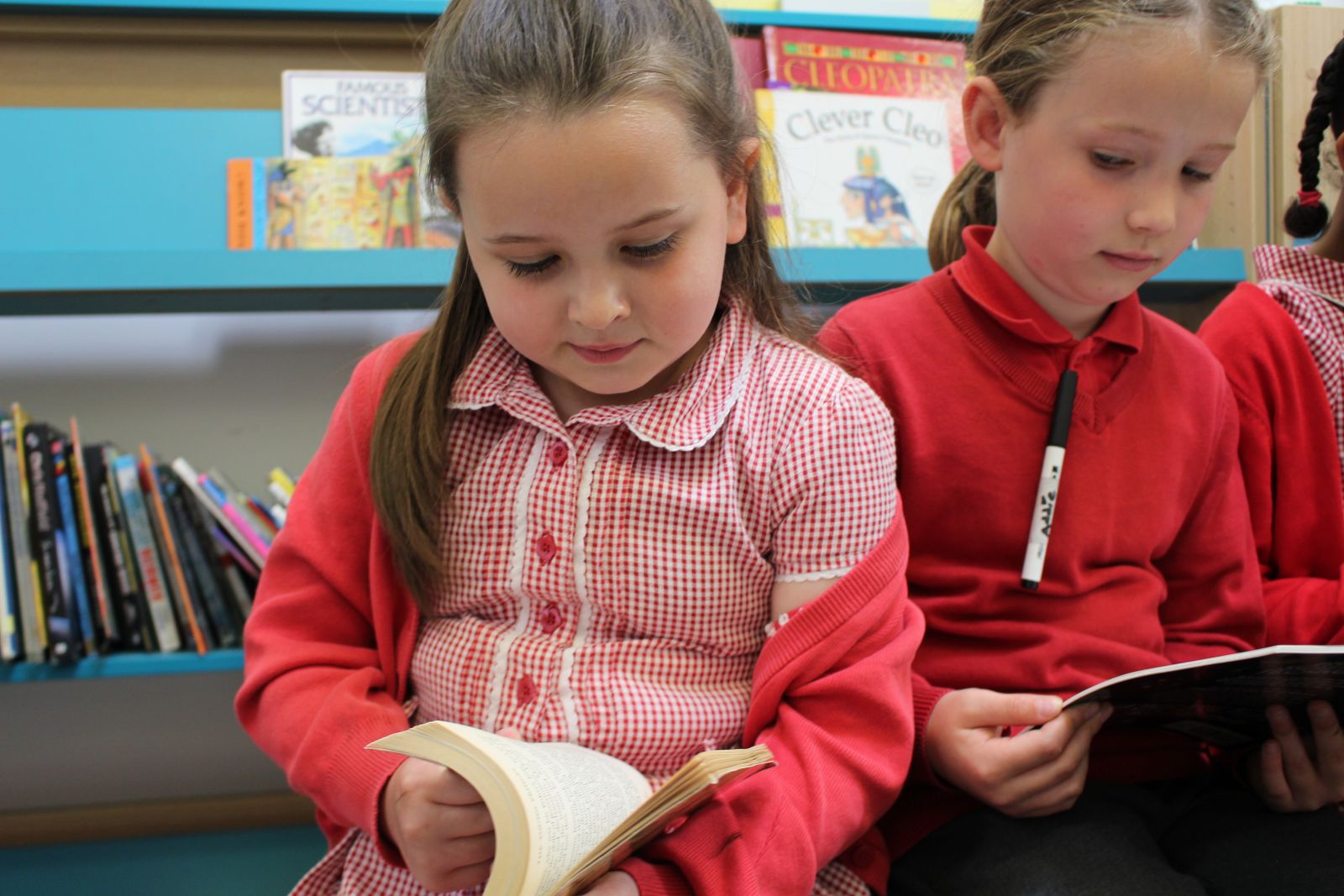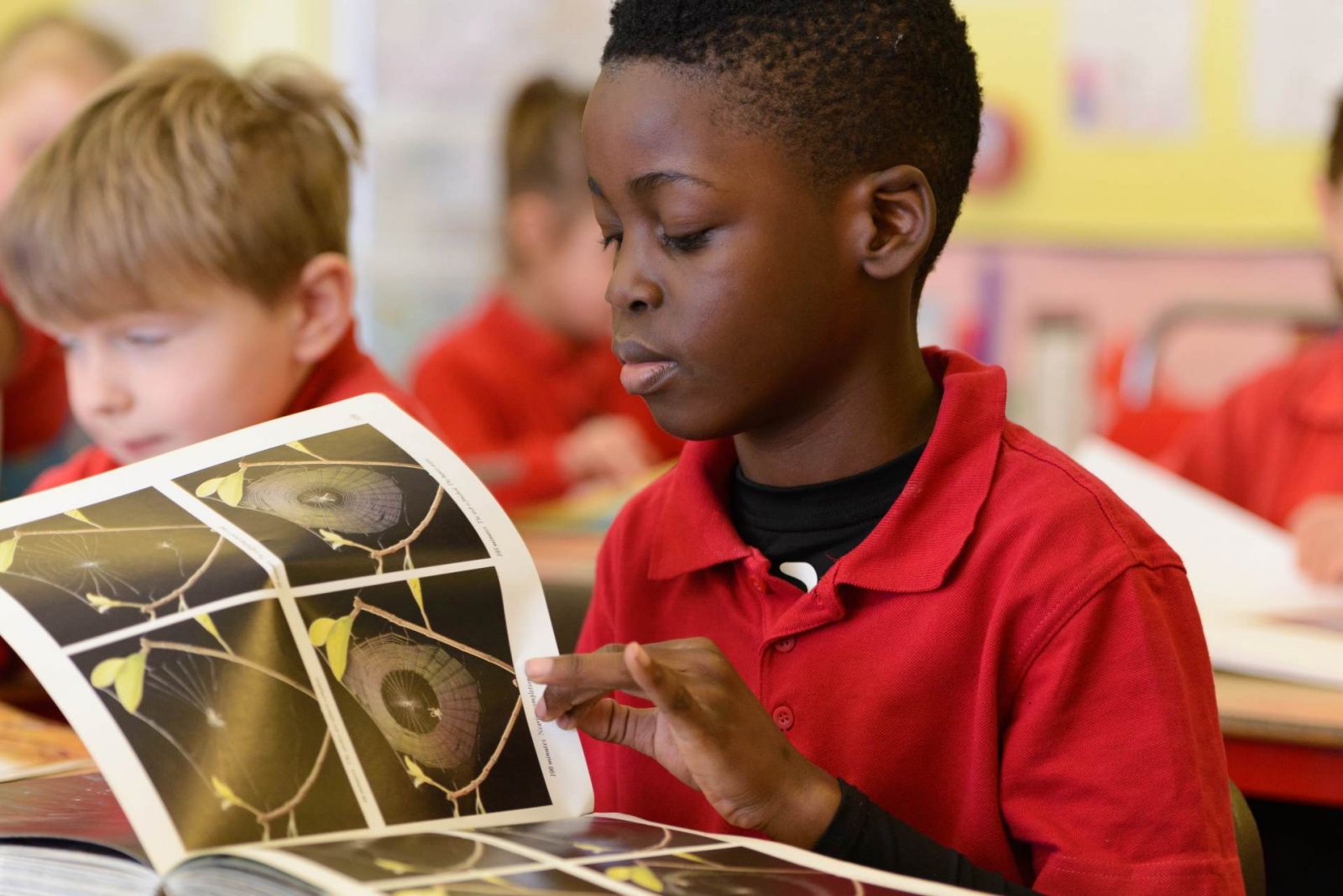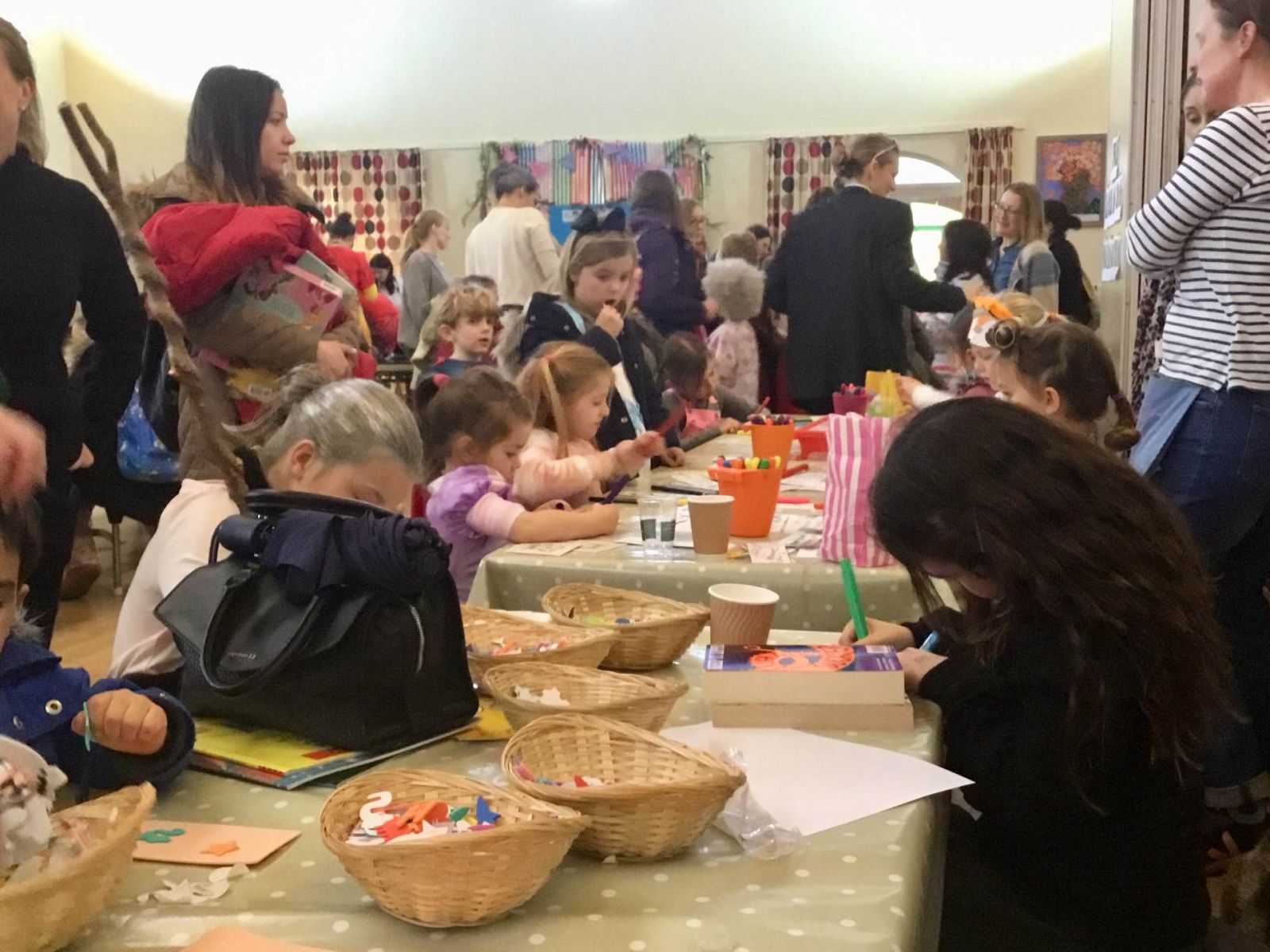
Our overall approach is "learning to read, reading to learn".
Our aim is that all children are fluent, confident and independent readers. We want to lead them to a world of discovery through books and to be delighted, informed, challenged, educated and entertained in their reading.
We are proud of our:
- exceptional range of carefully chosen, inspiring, new and classic books which reflect the diversity of our community so that children can see themselves represented
- engaging, dynamic phonics programme
- comprehensive, ambitious programmes of study for all ages
- excellent training for staff and parents in our approach to teaching reading
Learning to Read
Our bespoke, systematic synthetic approach to teaching early reading and phonics is:
- always given a high priority in the school day
- highly structured, building confidence and skills rapidly for independence
- matched to the phases of ‘Letters and Sounds’ and includes phonics and 'words to learn'
- engaging through use of clear symbols, songs, actions and resources
- based on a track record of excellence and delivers excellent outcomes.
We develop motivation and interest through:
- skilled, committed and engaging teaching of reading
- an excellent quality and range of shared resources
- an inspirational range of books for children to read and for teachers to read to them
- use of clear, consistent strategies for teaching word reading
- a charming, helpful (and sometimes cheeky) phonics bear called Fred.
- high-quality training for staff and parents.
Reading to Learn
'The ultimate goal of reading is comprehension’
We teach reading comprehension using the reciprocal reading approach which provides a clear model for the children to structure their thinking about what they are reading. The strategies taught are predicting, clarifying, questioning and summarising which allow children to explore different aspects of the books and, when discussing it with each other, they will talk themselves to a better understanding of the text.
We provide:
- an excellent, inspiring range of texts in our curriculum
- a clear structure based on reciprocal reading
- clear teaching steps to help understanding
- high-quality training for teachers
- an approach which works for all ages
- a model for children to 'talk themselves into a better understanding'


.jpg)


 Our Annual Book Swap
Our Annual Book Swap